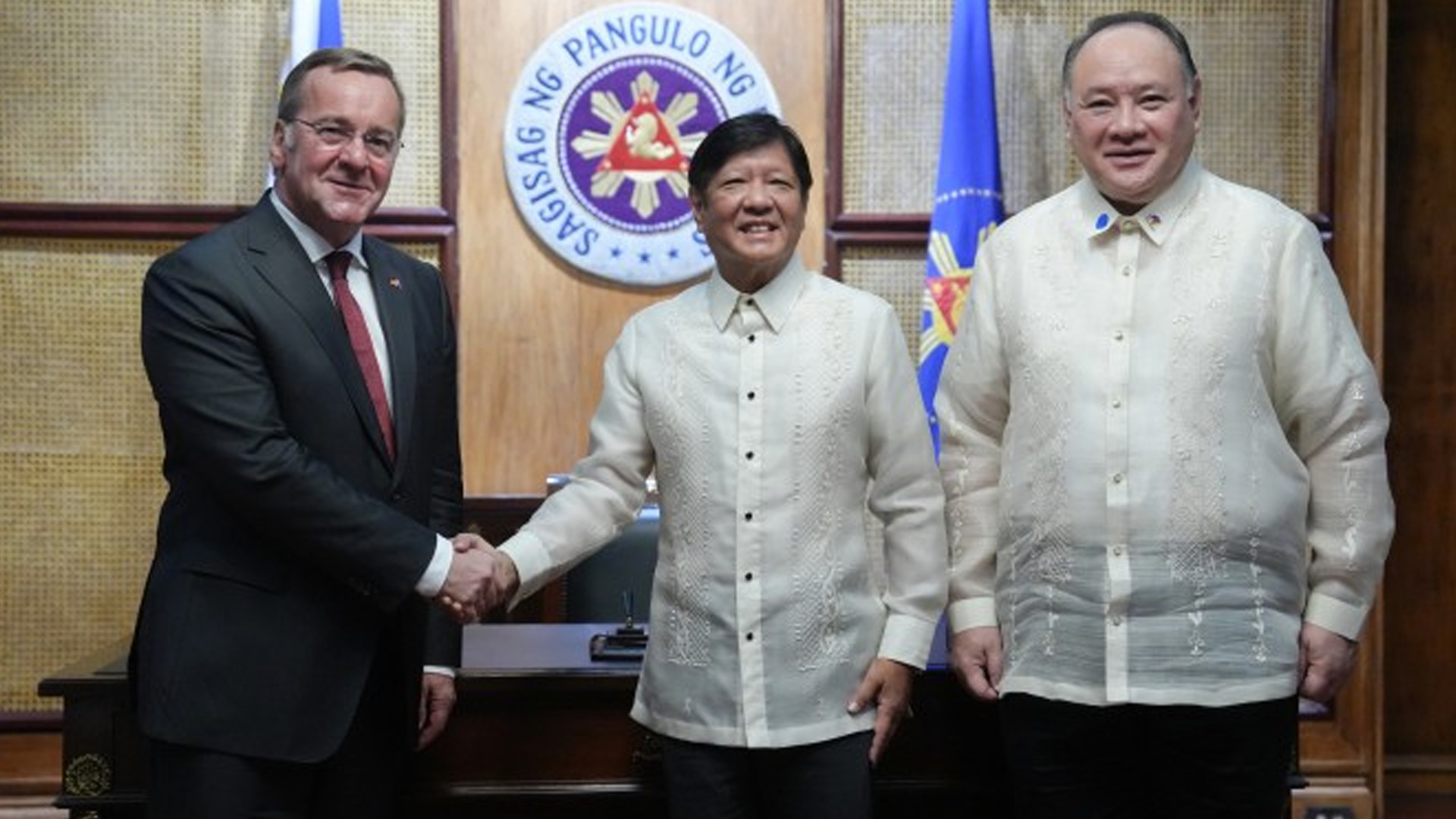The Philippines and Germany have committed to continue collaborating to finalize a broader defense cooperation arrangement before the year ends.
In a courtesy call to President Ferdinand R. Marcos Jr. in Malacañang Monday, German Federal Minister of Defense Boris Pistorius said he had a “splendid” meeting with his counterpart, Defense Secretary Gilberto Teodoro Jr.
The two top defense officials met on Sunday and committed to revitalize the Philippines-Germany defense relations.
“We decided, both of us, that we would like to have a security agreement, a defense agreement between our two countries, and we want to try to sign it (by) the end of the year,” Pistorius told the President.
“We sent already a draft a couple of weeks ago, and so we can continue working on it,” he added.
Germany is one of the Philippines’ oldest formal defense partners through the 1974 Administrative Agreement concerning the training of Armed Forces of the Philippines officers in Germany.
According to the German official, enhancing cooperation between Manila and Berlin is necessary, citing the need to continue to foster rules-based international order to maintain peace and stability in the Indo-Pacific and Eastern Europe.
“All of us know and we experience every day that the security of one region is always at the same time the security and stability of the other region,” Pistorius said.
“It is so linked together so closely and so directly that we can’t stand aside when we have to cooperate,” he added.
For his part, Marcos thanked Germany for its support and respect for international law.
“We look always to our partners, and our allies, for support, and we are grateful to Germany for continuing to support the rules-based international law that we all abide by,” he said.
External defense shift
Also present in the defense ministers’ meeting was AFP chief General Romeo Brawner Jr., which the military said highlights its ongoing shift to external defense.
“Gen. Brawner’s participation in the high-level meeting signifies the AFP’s dedication to advancing external defense capabilities through international relationships. The discussions focused on enhancing defense cooperation, mutual security interests, and strategies to promote peace and stability,” AFP public affairs office chief Col. Xerxes Trinidad said in a statement late Sunday.
The Philippines recently adopted the Comprehensive Archipelagic Defense Concept, a deliberate initiative to enhance maritime security and the defensive posture of the country amid Chinese aggression in the West Philippine Sea.
Reinforcing ties, international recognition
Meanwhile, two senators are looking forward to the finalization of the defense agreement.
In a statement, Senate President Pro Tempore Jinggoy Estrada said Philippines and Germany are reinforcing their diplomatic and military ties by committing to broader defense cooperation.
“This initiative signifies a significant step in enhancing our nation’s defense capabilities and strategic partnerships,” Estrada said.
He said the German Federal Defense Minister’s pronouncements to engage with the Philippines and other countries in the Indo-Pacific region show the shared commitment of the two countries “to maintain peace and stability in the region through cooperation and mutual respect.”
“It’s reassuring to know that such an offer was made, as it will greatly bolster our military’s ability to protect our sovereignty and ensure the security of our people,” Estrada said.
Senate Majority Leader Francis Tolentino, meanwhile, said the potential pact with Germany, and existing agreements with other countries prove that the Philippines’ rights and sovereignty are recognized in the international stage.
“Hindi natin dapat isinasantabi ang lahat nang mga ito dahil sila ‘yung tumutulong sa atin (We should not set aside all of these because they are the ones helping us),” Tolentino said during a press briefing.
Even the United Nations Convention on the Law of the Sea, Tolentino said, was created “involving the entire world.” (PNA)







